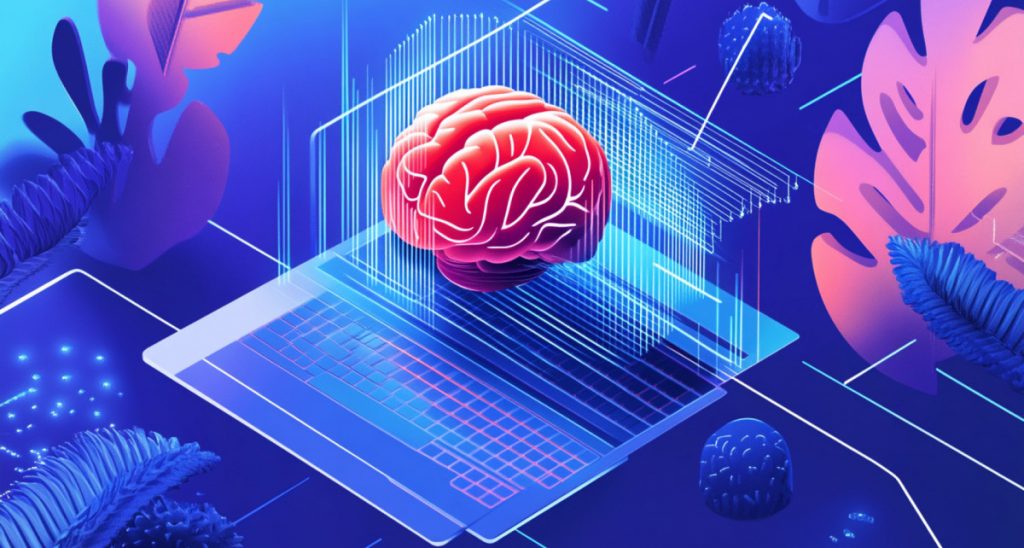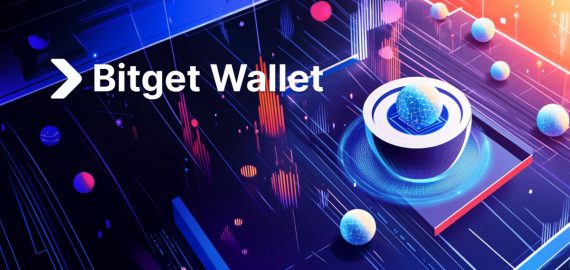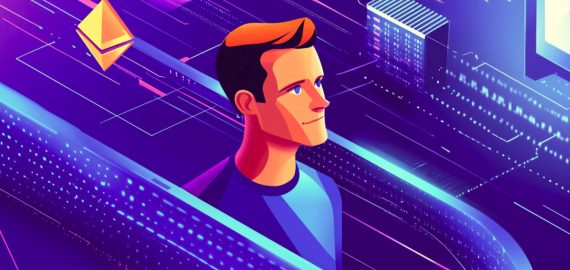The Ultimate Guide to Free AI Courses from Big Tech and Anthropic in 2026


In Brief
15 official free AI courses and guides from Google, Microsoft, Amazon, IBM, Meta, OpenAI, and Anthropic — a direct path to the skills defining the next wave of technology.

Artificial Intelligence is no longer an abstract technology discussed only in labs and conferences. In 2026, AI is embedded into every aspect of work — from software engineering to product design, from marketing analytics to enterprise planning. And as the technology accelerates, the knowledge gap widens.
To bridge it, the companies defining AI — Google, Microsoft, Amazon, IBM, Meta, OpenAI, and Anthropic — have launched official free learning programs. Some are full courses with certifications, others are practical PDF guides or hands-on training modules. All come directly from the source, require no tuition, and cover the skill sets that recruiters and teams already expect.
Here is the definitive look at 15 official AI courses and guides, sorted by company, with explanations of why each resource is worth your time.
Google: The Broadest Entry Point to Modern AI
Google has shaped much of the modern AI landscape — from TensorFlow to Gemini — and its learning resources reflect that breadth.
AI Essentials Specialization
Designed and taught by Google experts, this five‑module program can be completed in under 10 hours and requires no prior experience. It focuses on integrating generative AI into daily workflows—boosting productivity, refining prompt‑crafting skills, and instilling responsible AI use. Learners report saving nearly two hours per day by applying the tools taught, alongside earning an official certificate from Google, recognized by employers globally.
Introduction to Generative AI
A concise, under‑2‑hour class built by Google Cloud, it strips the complexity out of generative AI and explains it through plain‑language lessons and visual demos. The course highlights how text, images, and code are produced by models like Gemini, then ties it to practical use cases in business and content creation. Completion unlocks a shareable Google Cloud digital badge, a quick credential that signals awareness of emerging AI tools.
Introduction to Generative AI Learning Path
Created by Google Cloud, this structured series combines short courses, interactive labs, and case studies to guide learners from first exposure to applied generative AI. It’s built for professionals who want to understand not only how tools like text‑to‑image or code generation work, but how to apply them in business settings. Completing the track also unlocks a Coursera‑verified credential backed by Google, adding weight to a resume or LinkedIn profile.
Machine Learning & AI Courses (Google Cloud Training)
This hub curates dozens of modular courses and hands‑on labs created by Google Cloud engineers. It goes beyond theory by letting learners train and deploy models directly on platforms like Vertex AI and BigQuery. The material is fully free, updated regularly to reflect Google’s latest tools, and provides badges that align with professional certifications—making it a direct path into enterprise‑level AI infrastructure.
Data Science & Artificial Intelligence
Google’s open learning hub brings together free courses, hands‑on labs, and short guides covering AI, data science, and cloud tools in one place. The standout feature is the curated “AI Essentials” and “Generative AI” tracks, which mix theory with live demos and practice exercises from Google Cloud engineers. It’s built for professionals who want to add AI literacy to their core digital skills without wading through scattered resources, and all modules lead to shareable Google credentials.
Microsoft: Training the AI Workforce
Microsoft has embedded AI into Azure and productivity tools like Copilot, and its learning hub reflects that integration.
AI Learning Hub (Microsoft Learn)
A unified portal for Microsoft’s AI education, it combines hundreds of bite‑sized modules and full career tracks. Users can earn badges tied to Microsoft certifications, learn Copilot‑ready skills, and access hands-on labs across Azure AI and machine learning. The platform’s biggest draw is its industry alignment — the skills taught match those tested in Microsoft certification exams and used inside Fortune 500 companies.
Generative AI for Beginners
A free 18‑lesson video series from Microsoft engineers that blends theory with direct, hands‑on demos. Learners practice with Azure OpenAI, build real mini‑projects, and see how tools like Copilot fit into workflows. No coding background is required, yet the course introduces industry‑grade concepts that help beginners create usable prompts, understand model limitations, and earn skills they can immediately showcase on professional profiles.
Amazon (AWS): AI in the Cloud
Amazon has turned AWS into the backbone of AI for startups and enterprises alike. Its free courses are entry ramps into that ecosystem.
AI Courses and Training – AWS Skill Builder
Built by AWS training architects, this library offers structured pathways that teach how to use services like Bedrock, SageMaker, and Q. Modules range from 15‑minute primers to multi‑day labs, all tied directly to AWS consoles, so learners build real apps as they go. The program is fully free, and several tracks include badges that count toward AWS certification prep — a rare bridge between introductory lessons and recognized credentials.
Machine Learning (ML) & Artificial Intelligence Training
Created by AWS experts, this program provides a structured track that leads directly into AWS certification prep. It combines theory with hands-on labs for SageMaker, Bedrock, and real ML pipelines, helping learners move from basic model concepts to production deployment. It’s also one of the few free programs that mirrors the same curriculum AWS uses internally to train its own teams, making it a direct gateway into enterprise‑grade AI work.
IBM: Responsible AI with an Enterprise Lens
IBM continues to position itself as a thought leader in AI governance and enterprise use. Its free training emphasizes ethical framing and applied skills.
Artificial Intelligence Fundamentals — IBM SkillsBuild
Created by IBM SkillsBuild, this foundational course covers AI history, machine learning, computer vision, and ethics in a concise, structured way. It requires no technical background and can be completed in under 10 hours, offering interactive labs and case studies from IBM’s enterprise work. Graduates earn a verified IBM certificate, a credential recognized by employers and universities worldwide.
Meta: Building the AI Learning Alliance
Meta’s AI work spans open models, recommendation systems, and marketing tech. Its learning resources bridge technical and creative fields.
Meta AI Learning Alliance (AILA)
Meta’s dedicated platform provides free AI courses and live virtual workshops created with input from Meta’s research teams. It blends technical lessons on data analytics and AI ethics with interactive labs and case studies from Meta’s own product ecosystem. The hub is structured for collaboration, giving learners access to peer groups and mentorship pathways—turning training into an active community for future AI professionals.
OpenAI: Direct Knowledge from the ChatGPT Creator
OpenAI has reshaped global AI literacy with ChatGPT. In 2025, it shares both a tool and structured ways to think and build with AI.
OpenAI Academy
Built directly by the creators of ChatGPT, this platform provides structured pathways into real‑world AI use. Learners gain access to interactive labs, prompt‑engineering exercises, and model‑building guides drawn from OpenAI’s own workflows. Early participants also receive exclusive case studies and prototype tools before they’re released publicly, making the Academy a rare source of insider‑level training straight from the team shaping the industry.
A Practical Guide to Building Agents
This official PDF distills OpenAI’s approach to AI agents into a framework any team can follow. It shows how to move from idea to deployment, covering planning, architecture, testing, and iteration. The guide stands out for its real‑world templates — including agent design checklists, sample workflows, and integration tips used by early adopters at scale — making it as practical for startups as it is for enterprise teams.
AI in the Enterprise
An official OpenAI business guide created for decision‑makers, showing how organizations move from experiments to full‑scale AI integration. It includes sector‑specific case studies, a framework for measuring ROI, and practical templates for aligning AI projects with core business goals—turning abstract strategy into an actionable roadmap.
Identifying and Scaling AI Use Cases
This official OpenAI guide gives companies a structured framework for spotting where AI can deliver measurable impact before committing resources. It breaks down evaluation criteria, cost‑benefit analysis, and real examples of how early pilots grow into scaled deployments. Unlike generic whitepapers, it provides practical checklists and worksheets that teams can directly use to prioritize projects and avoid costly missteps.
Anthropic: Prompt Craft and Claude Practices
Anthropic, the company behind Claude, focuses on safe, interpretable AI. Its guides are highly practical and targeted.
Prompt Engineering Guide
Created by Anthropic’s Claude team, this guide offers a practical framework for crafting prompts that produce reliable, safe, and nuanced outputs. It includes tested patterns for multi-step reasoning, red‑teaming techniques to spot weaknesses, and real examples used by product teams building on Claude. The resource goes beyond theory — it functions as a working manual for anyone shaping AI behavior in production systems.
Claude Code Best Practices
This official engineering guide from Anthropic lays out actionable standards for coding with Claude — from writing structured prompts to designing evaluation tests and error‑handling loops. It’s aimed at developers who want to embed AI into production software without compromising stability, providing practical frameworks for debugging and maintaining agent‑driven systems long‑term.
What This Signals About AI In 2026
Leading AI companies now release tools alongside training programs, showing that the main bottleneck has shifted from algorithms to human expertise.
Open access to courses builds the workforce these companies need while giving learners knowledge directly from the technology’s creators.
By 2026, understanding AI has become a baseline skill. These courses mark the moment Big Tech stopped guarding its expertise and began sharing it for free.
Disclaimer
In line with the Trust Project guidelines, please note that the information provided on this page is not intended to be and should not be interpreted as legal, tax, investment, financial, or any other form of advice. It is important to only invest what you can afford to lose and to seek independent financial advice if you have any doubts. For further information, we suggest referring to the terms and conditions as well as the help and support pages provided by the issuer or advertiser. MetaversePost is committed to accurate, unbiased reporting, but market conditions are subject to change without notice.
About The Author
Victoria is a writer on a variety of technology topics including Web3.0, AI and cryptocurrencies. Her extensive experience allows her to write insightful articles for the wider audience.
More articles

Victoria is a writer on a variety of technology topics including Web3.0, AI and cryptocurrencies. Her extensive experience allows her to write insightful articles for the wider audience.


















































